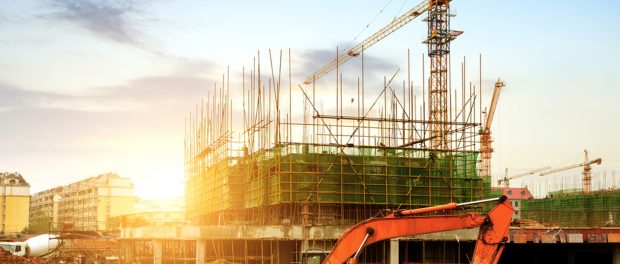What Makes Commercial Construction Complicated?

Commercial construction often presents a labyrinth of complexities, making it a challenging sphere even for seasoned professionals. Various factors contribute to this intricacy, including strict regulations, demanding schedules, budget constraints, and the need for collaboration across multiple disciplines.
In this article, we shall delve deeper into these aspects to understand why commercial construction is considered a demanding and complicated field. With companies like Renteca renting out welding machines and other companies providing specialised equipment, construction projects have become easier to execute. However, the complexities of commercial construction still remain.
Strict regulations
One of the primary reasons for the complexity of commercial construction is the presence of stringent regulations. These regulations are put in place to ensure that buildings meet safety standards and codes, as well as adhere to environmental and health guidelines. As a result, every stage of the construction process must be closely monitored and documented, from obtaining permits to completing final inspections. Failure to comply with these regulations can result in costly fines, delays, and even legal repercussions.
Demanding schedules
Another factor that contributes to the complexity of commercial construction is the tight schedules associated with these projects. Unlike residential construction, where homeowners may allow for some flexibility in the timeline, commercial construction projects often have strict deadlines to meet. This is especially true for projects in sectors such as healthcare and education, where any delay can have significant consequences. As a result, project managers must carefully plan and coordinate each task to avoid delays and ensure timely completion.
Budget constraints
With large sums of money involved, commercial construction projects are also subject to strict budget constraints. Project managers must carefully balance costs, from labour and materials to equipment and insurance, in order to stay within the allocated budget. This requires constant monitoring and adjustments throughout the construction process, as unexpected expenses can arise at any stage. Budget management is crucial for the success of commercial construction projects, making it another layer of complexity that professionals must navigate.
Collaboration across multiple disciplines
Unlike residential construction, which may involve a limited number of contractors and specialists, commercial construction often requires collaboration across multiple disciplines. This includes architects, engineers, contractors, subcontractors, and various tradespeople. Coordinating the efforts of these professionals can be challenging and requires effective communication and project management skills. Additionally, conflicts or delays in one area can have a domino effect on the entire project, further adding to the complexity of commercial construction.
How Can These Complexities Be Managed?
While commercial construction may present various challenges, there are ways to effectively manage these complexities. Some methods include the following:
Hiring Experienced Professionals
One of the critical steps to managing complexities in commercial construction is hiring experienced professionals. Skilled architects, engineers, and project managers who have a deep understanding of the industry can navigate through the regulatory landscape, manage budgets effectively, meet tight deadlines, and coordinate with various disciplines seamlessly.
Implementing Advanced Technology
By incorporating advanced technology such as Building Information Modelling (BIM), project management software, and digital communication tools, companies can streamline planning and execution. These tools can also improve collaboration, enhance documentation accuracy, and provide real-time updates, helping to keep the project on track.
Regular Training and Skill Enhancement
Regular training and skill enhancement programs for the team members can also help manage complexities. These programs can help them stay updated with the latest regulations, learn new technologies, and improve their problem-solving and communication skills.
Robust Planning and Risk Management
Before beginning a project, a robust plan should be put in place, considering all potential risks and contingencies. Effective risk management can prevent unexpected issues from derailing the project and can ensure smooth execution.
Building Strong Vendor Relationships
Establishing strong relationships with vendors, like equipment rental companies, can also help manage complexities. Reliable vendors can ensure timely delivery of quality materials and equipment, contributing to the project’s success.
What Are the Benefits of Overcoming Complexities in Commercial Construction?
While the complexities of commercial construction may seem daunting, overcoming them can bring various benefits. These include:
- High-quality structures that meet safety standards and codes
- Timely completion of projects within budget
- Improved collaboration among professionals
- Enhanced communication and documentation accuracy
- Effective risk management and problem-solving skills development
Conclusion
While commercial construction is characterised by a myriad of complexities, such as strict regulations, demanding schedules, budget constraints, and the need for cross-disciplinary collaboration, these challenges can be effectively managed. By employing experienced professionals, leveraging advanced technology, providing regular training, embarking on robust planning, and nurturing strong vendor relationships, companies can navigate these complexities. Overcoming these challenges not only leads to the successful execution of projects but also results in structures of high quality, promotes teamwork, and enhances skills within the construction team.

